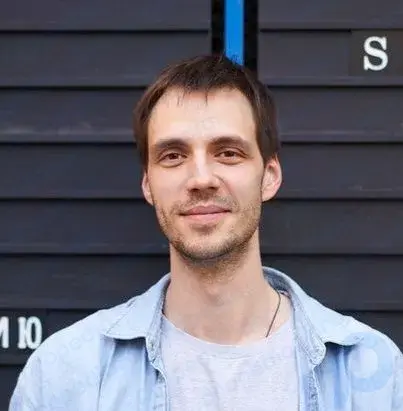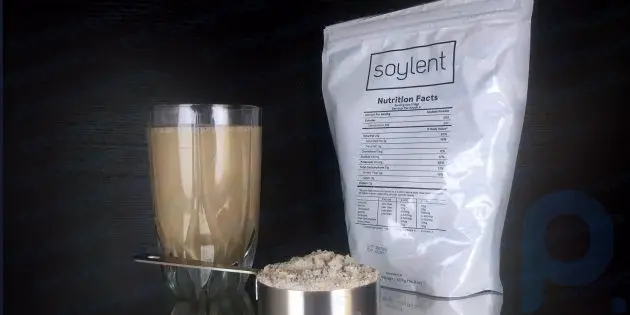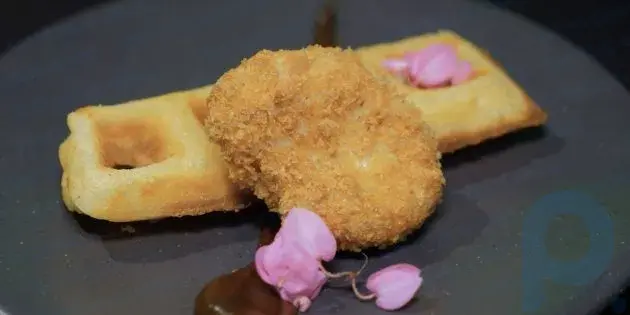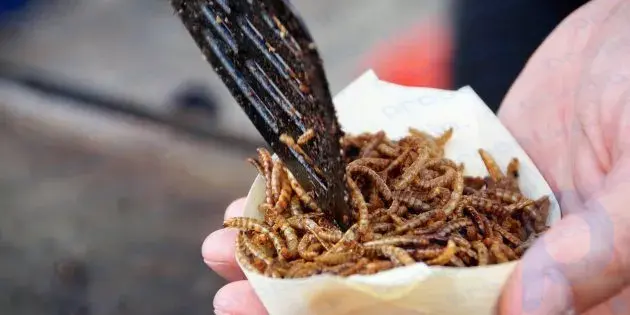About foods that will soon disappear from our diet, the benefits of food additives and myths about cooking.
Vsevolod Ostakhnovich was the founder of a farm products store and worked as a cook. But at some point his interest shifted to Food&Science - a field that in Russia is sometimes called bromatology.
This is a hybrid discipline within which food products are studied: their safety, the effect of various nutrients on the human body, new technologies for their processing, and so on.
However, first of all, Vsevolod is still a blogger who shares useful scientific information about food with people. We talked to him about the most common misconceptions in nutrition and the diet of the future.
 Vsevolod Ostakhnovich Food&Science researcher, host of the telegram channel of the same name , scientific journalist, author of the book “ I Ate Your Myths .”
Vsevolod Ostakhnovich Food&Science researcher, host of the telegram channel of the same name , scientific journalist, author of the book “ I Ate Your Myths .” Which food facts are actually myths?
— What is your least favorite myth about food and cooking?
— My least favorite myth is that products are not created equal. There are good ones and there are bad ones. This reflects a view of the world in principle.
I talked a lot about this topic with my friends, explaining to them that the body breaks down both avocados and burgers into simple basic blocks, without labeling them as “good” and “bad.” And they answered me: “I still don’t believe that French fries are healthy.”
Speaking of cooking... I've moved away from that topic and am thinking more about food in general. But I remember this incident from the last time. I watched a video of Gordon Ramsay, the Michelin-starred chef. He said: “You need to add vegetable oil to the butter to lower the temperature and make sure the butter doesn’t burn.” It is not true. Vegetable oil will also heat up and burn if you don’t keep an eye on it.
—What fact that initially seemed true to you was actually a myth?
— That vegan and vegetarian diets are harmful. I've read that people who follow them don't get certain nutrients. But it turned out that this was not the case.
Vegan and vegetarian diets, like any other, can be healthy or unhealthy, depending on how they are formulated.
Omnivorous people can also have imbalances: some eat a lot of chocolate and little fruit, while others eat a lot of meat and few vegetables. As a result, both of them do not receive enough nutrients and suffer from deficiency in the long term.
However, a vegan diet consists of more restrictions. Yes, you can get all the necessary macro- and microelements from plant foods. But this is more difficult to do. People following such diets need to be more careful about what is on their plates.
I'm not promoting anything. I am neither a vegetarian nor a vegan . But the truth is more important.
— Are people’s fears about food additives E-101, E-20 and the like justified? Why are they even needed?
- Not justified. The food industry is developing successfully. Hundreds of years ago, people baked sour gray bran bread with stable straw, used toxic food coloring, and added lead to wine to create a sweet taste.
Now we have an organization for the control of food additives - the joint FAO/WHO expert committee on food additives. And when a substance is given an E-number, it means it has been tested and found to be edible.
At the same time, in the food industry, the use of a certain additive is allowed only in the permitted quantity, which is 100 times lower than the permissible daily dose.
Supplements are not used to implement the theory of the “Golden Billion”. They are needed solely to ensure that the product is safe and has certain qualities. For example, at home we will not be able to get juice in which pieces of fruit will float evenly throughout the entire volume: they will simply settle to the bottom. But thanks to the achievements of the food industry, we will achieve this effect.
Another example: milk sours in the heat within a few hours. Nutritional supplements prolong his life by removing pathogenic flora - bacteria, molds.
We often worry about things we shouldn't. People use alcohol and nicotine. And these are proven carcinogens . This is what you need to think about, and not focus on groundless fears. A couple of glasses of vodka can easily overcome the harm from consuming food additives.
What will we eat in the future?
— How would you assess the prospects of Soylent and other universal foods that are designed only to provide nutrients?
— Soylent is a Silicon Valley toy. It was invented by a programmer whose level of scientific knowledge remains in question. Here's what the development most likely looked like. People Googled what micro- and macronutrients a person needs, threw them into a mock mixer and said: “Here’s a drink that will provide you with nutrition for the rest of the day.” But it's not right.
Because, firstly, it is not by chance that during the course of evolution we received teeth and a digestive system capable of processing complex fibrous products. If she doesn't work, she will wither away.

Secondly, science still does not know exactly what substances we should receive. One thyme contains several dozen chemicals. How to understand which of them is important and necessary, and which is not? To do this, it is necessary to conduct complex multifaceted research.
This is a lot of work. That’s why scientists advise preparing varied diets. Reducing everything to a set of 30–50 useful elements is incorrect.
— Is the prospect of growing meat from a test tube realistic? Can such production be put on stream?
— Another project that, at first glance, seems cool. However, there are currently too many restrictions to implement it.

Technologies for creating artificial fabrics are developing very slowly. In addition, using them to make a product that would completely replicate the texture of meat is unlikely to be possible. The maximum is something like minced meat.
— Now there is a lot of talk about how some food products are disappearing from the diet due to climate change. What could we lose in the future?
“Now we are forced to grow varieties that are resistant to various environmental conditions: drought, humidity, beetle infestation. Rare species are being discarded and everything is being generalized. Every year we lose a lot.
In addition, some varieties become unprofitable to grow: they quickly deteriorate. Why do you think “plastic” tomatoes are sold all over the world? They are simply convenient to transport.
— In your opinion, will people eat less meat in the future?
- I think yes. Perhaps one day we will all have to give it up, because now our planet is suffering from meat production.
— What then could become food in the future, in your opinion?
- Insects. Already, about 2 billion people eat them on a regular basis: 31% - beetles, 18% - caterpillars, 14% - bees, wasps and ants. For many this is the norm.
There is such a thing - life cycle assessment. Each product receives it based on how its production will affect the environment. Thus, 1 kg of beef produced generates 70 kg of greenhouse gas emissions. For comparison : 1 kg of potatoes is only 500 g, insects are even lower.

At the same time, insects are a nutritious product. For example, mealworms have protein levels comparable to beef. In addition, many insects are rich in vitamins and minerals, such as calcium, iron and zinc.
— Are there now industrial enterprises producing insect products?
- Yes. Every six months, new enterprises are opened where caterpillars, silkworms and cockroaches are raised. The latter are then processed into cricket flour and protein powders or made into cutlets.

